US fortifies security at diplomatic posts in Muslim world after exiting Iran deal, plans for embassy to al-Quds
The US is reportedly taking extensive measures to enhance security around its diplomatic posts across the Middle East following its recent exit from the Iran nuclear deal as well as the scheduled transfer of its embassy in Israel from Tel Aviv to Jerusalem al-Quds.
The State Department has been taking measures to strengthen security at diplomatic compounds throughout the Muslim world for weeks, US media outlets reported Saturday amid growing concerns over potential repercussions of the Trump administration’s policy decisions in the strategic region.
On Tuesday, US President Donald Trump announced Washington’s withdrawal from the international agreement -- officially recognized as the Joint Comprehensive Plan of Action (JCPOA) -- which was signed in 2015 between Tehran and the P5+1 group of countries — the US, UK, France, China, Russia and Germany.
Under the agreement, Tehran undertook to put limits on its nuclear program in exchange for the removal of nuclear-related sanctions imposed against Iran.
Trump, who has consistently described the deal as “the worst and most one-sided transaction Washington has ever entered into,” further announced a re-imposition and strengthening of sanctions against Iran.
Trump re-imposed the sanctions despite the opposition of its European allies and Russia, and despite repeated confirmation by the UN-affiliated International Atomic Energy Agency (IAEA) that Iran was complying with the 2015 deal.
Additionally, the US is due to officially move its embassy from Tel Aviv to al-Quds on Monday following a decision made by Trump earlier this year, disengaging from decades of international norms in dealing with the Israeli regime's disputed claim to the holy city as its capital.

Days after President Donald Trump pulled out of the Iran nuclear deal, tensions in the Middle East have spiked sharply, raising concerns that the US Embassy move would further ratchet up conflict with unpredictable outcomes for the Middle East.
According to US press reports, the State Department has been trying to boost security at its posts throughout the Muslim world in advance of the embassy move in anticipation of probable violence even though administration officials insist that the issue is no longer sensitive and that it would eventually lead to greater regional stability.
This is while a former veteran CIA officer and member of White House national security team, Bruce Riedel voiced concerns about Washington’s recent moves, saying: "In this highly tense situation, we've now poured gasoline on the fire by removing the Iran nuclear deal, which provided some semblance of constraint."
Riedel, who now directs the ‘Intelligence Project’ at the Washington-based think tank Brookings Institution, further underlined that Trump is now "only a few days away from throwing another can of gasoline on the fire by moving the embassy to Jerusalem.”
“It's very dangerous. It's sending the signal that the United States wants to confront Iran, and that's a signal that the Israelis and the Saudis are all too eager to hear," he added.
Riedel also emphasized that Washington was no longer playing the role it has traditionally occupied in the Middle East, asserting that the US should normally push for restraint in the region.
"Normally in this scenario," he said, "the United States would be the leading voice counseling restraint, but that's no longer the case."
The embassy move to al-Quds is also a contentious issue for Palestinians, who hope to claim part of the holy city as their future capital, and for many in the Muslim world as it is home to some of the holiest sites in Islam.
Palestinian observers have further insisted that the timing of the move feels like salt in a wound, as the embassy inauguration ceremony will take place on the anniversary of Israel's founding -- a day called the "Nakba," or "disaster," because hundreds of thousands of Palestinians were either killed or forced to flee their homes.
US House passes bill targeting charities and pro-Palestine groups
Hezbollah attacks Israeli forces after Lebanese homes blown up
World leaders, states hail ICC arrest warrants for Netanyahu, Gallant
MP: US accountable for possible Israeli 'foolishness' to attack Iraq
VIDEO | Israeli policies strangle Palestinian agriculture, economy
Iran's president offers condolences to Pakistan over terrorist attack
Canada’s Yukon town council at standstill over refusing oath to King Charles
Yemen's Houthi calls for jihad to protect Palestine against Israel


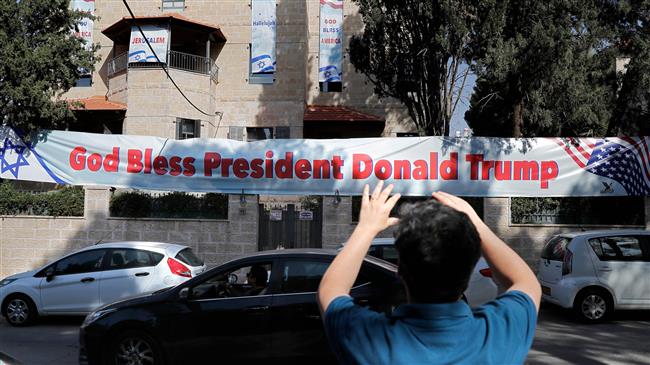

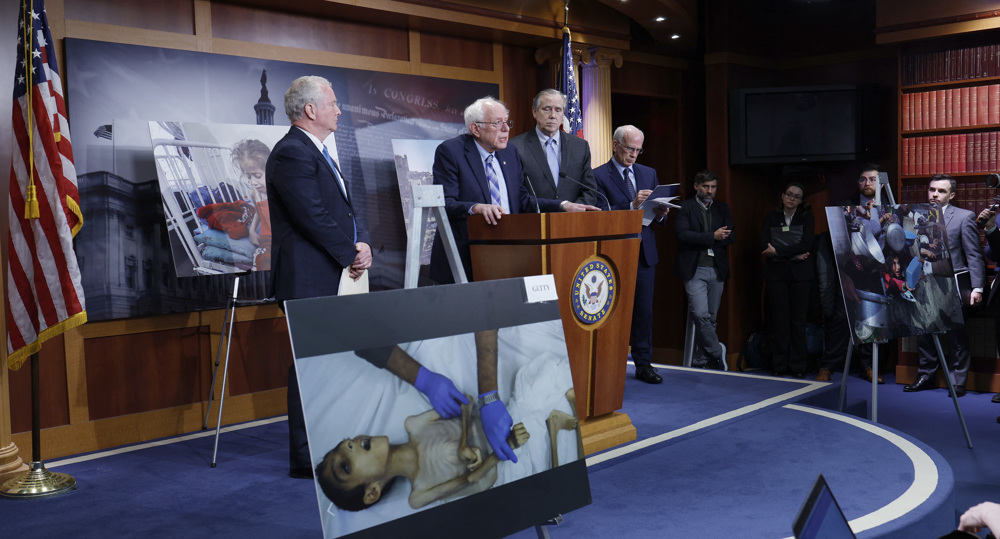




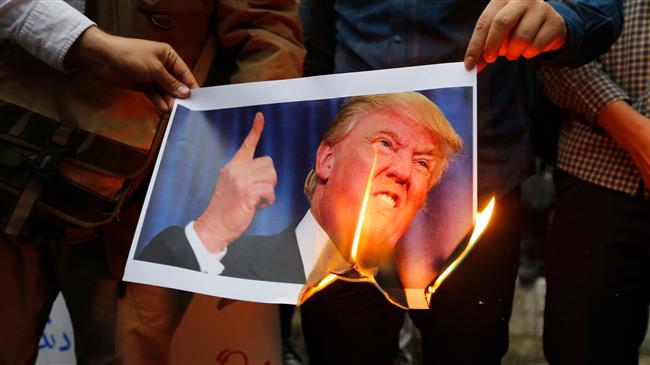
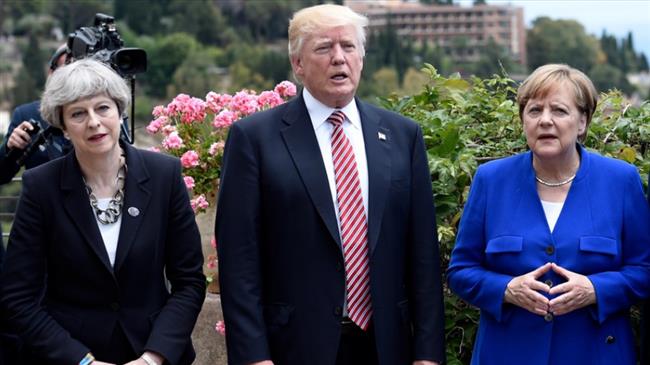
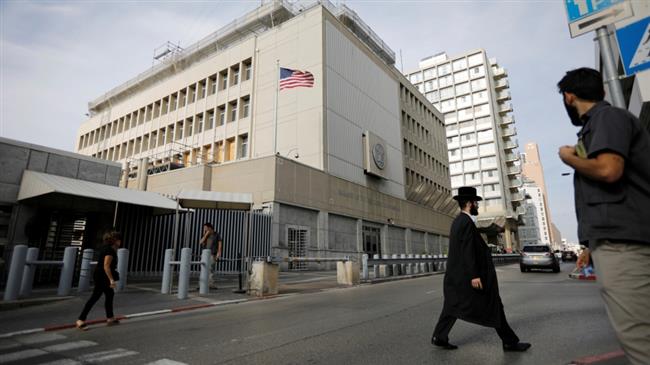

 This makes it easy to access the Press TV website
This makes it easy to access the Press TV website